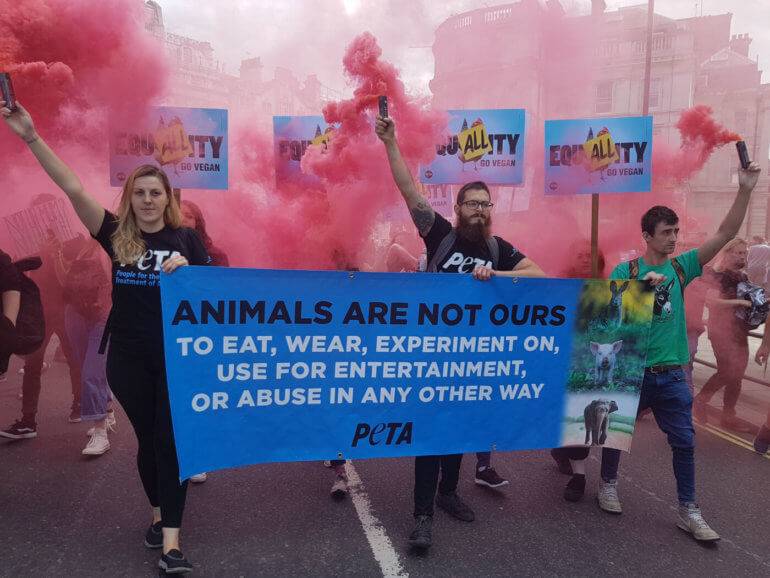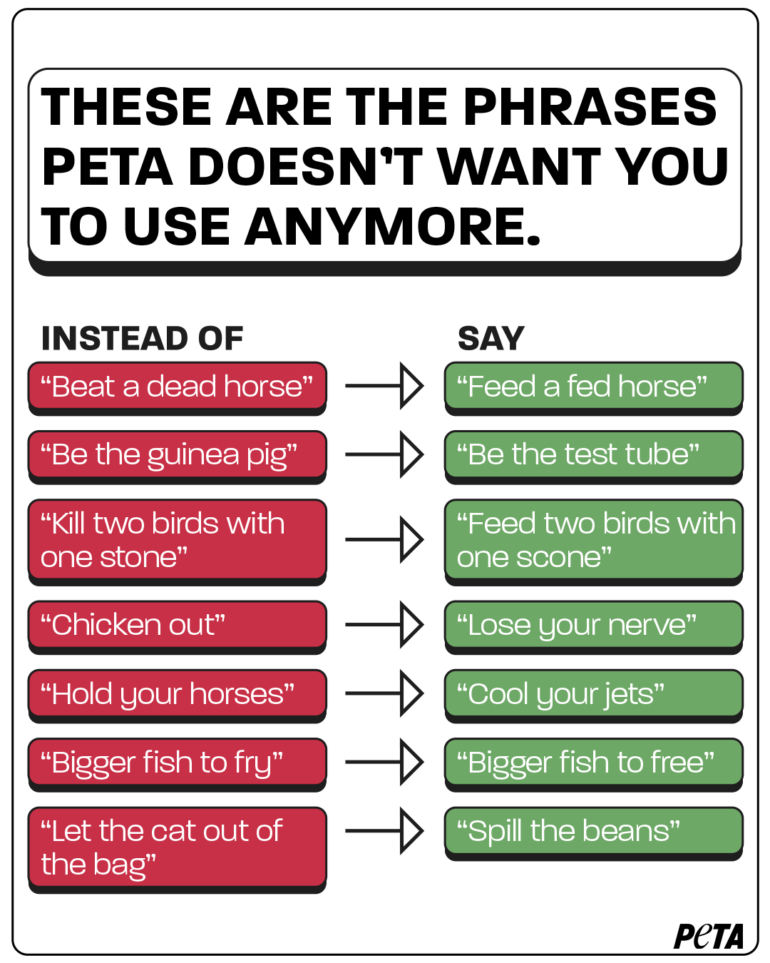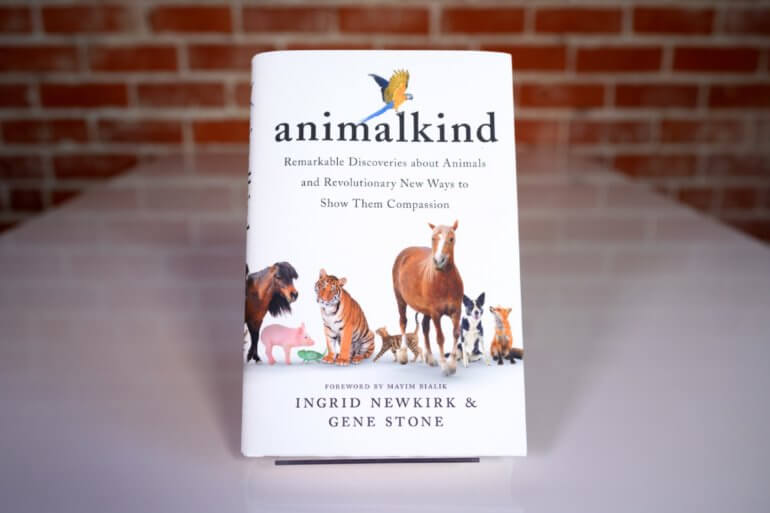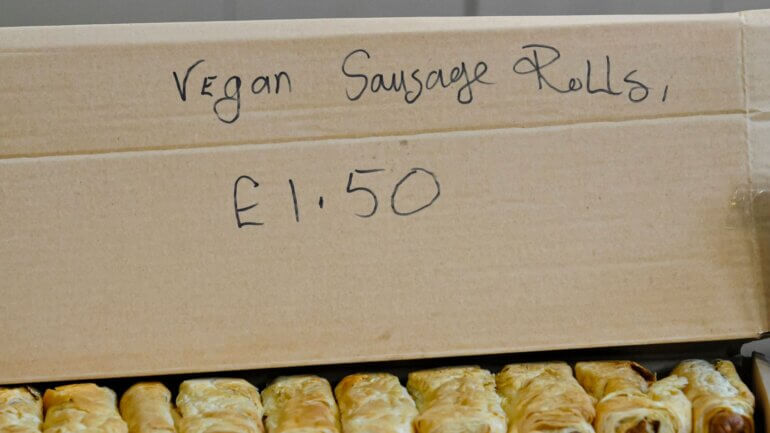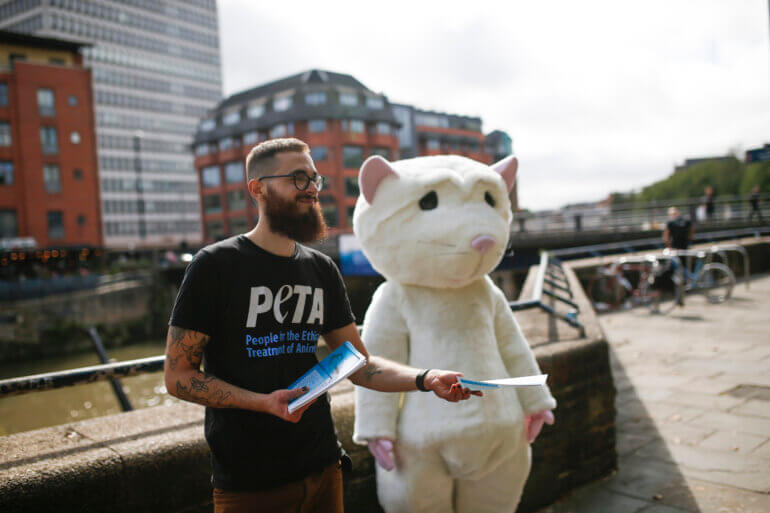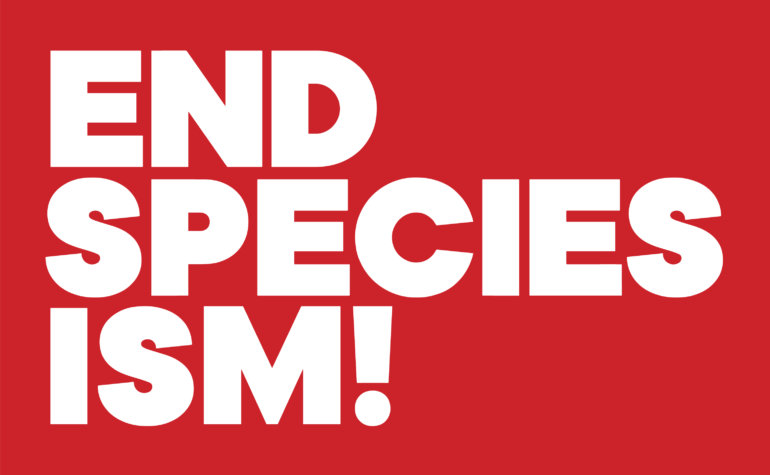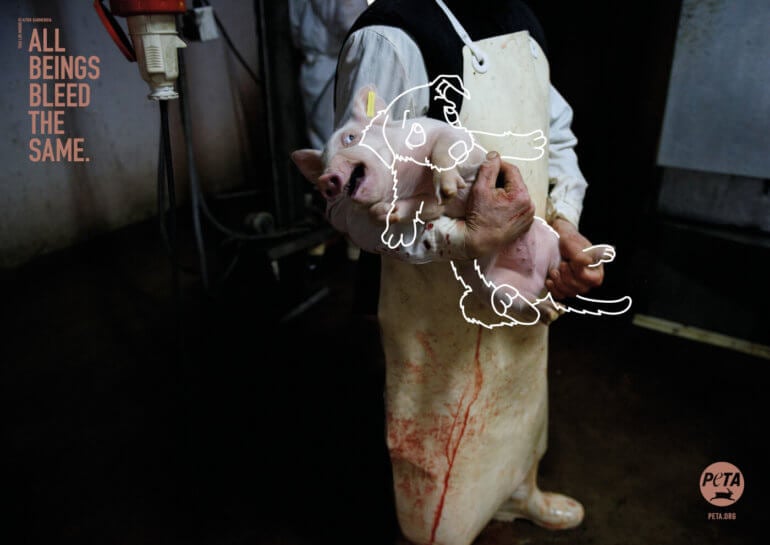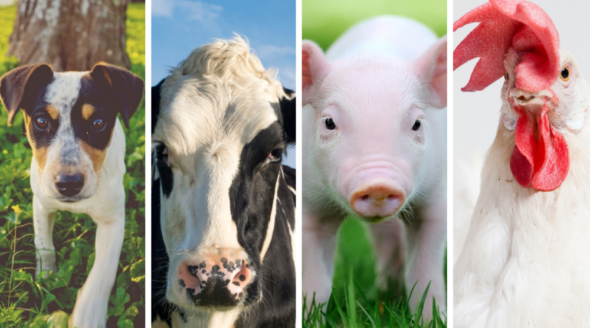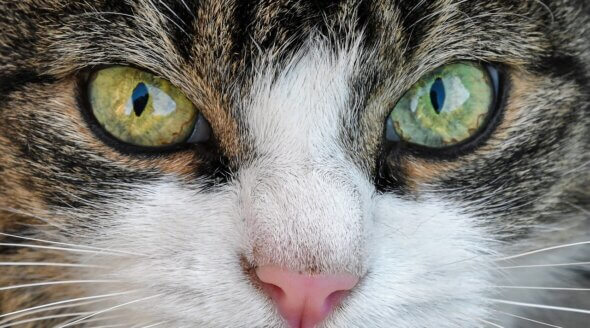10 Things to Do for World Day for the End of Speciesism
Saturday, 31 August, is World Day for the End of Speciesism. Read on to find out what this means and how you can participate.
Psychologist Richard Ryder coined the term “speciesism” in 1971, referring to a prejudice in favour of human interests and against those of other species. He dismissed the assumption that humans are in a different moral category to other species as “sheer superstition” and concluded that “it may come to pass that enlightened minds may one day abhor ‘speciesism’ as much as they now detest ‘racism’. The illogicality in both forms of prejudice is of an identical sort.”
Ending speciesism means restoring the dignity and respect that we’ve stripped from other animals by making their lives a living hell in laboratories, on factory farms, in slaughterhouses, on racetracks, and anywhere else they’re exploited.
Here are 10 ways you can take action for animals and celebrate World Day for the End of Speciesism:
1. Organise or Attend a Protest
Each year, dozens of marches, protests, demonstrations, and events happen around the globe on World Day for the End of Speciesism. Host your own, or join one of the 109 actions located across 27 countries. London’s march will leave from Marble Arch at 12 noon.
2. Share PETA’s Animal-Friendly Idioms
We all know that words matter. Phrases like “kill two birds with one stone” are derogatory, reinforce negative behaviours, and normalise violence. Language must evolve in order to build a kinder world. Download and share PETA’s list of animal-friendly idioms with friends or on social media.
3. Host an Anti-Speciesist Book Club
Books provide readers with new perspectives on life. It isn’t always easy to point out normalised speciesist behaviour to close friends or family, but you can ask them to read books such as Animal Liberation Now. Authors like Peter Singer explain brilliantly why favouring some animals over others is wrong. Pick one of PETA’s top 12 books every animal rights activist should read and get a discussion going with your book club.
4. Vegan Sausage Roll Challenge
Buy 10 Greggs’ vegan sausage rolls – PETA’s favourite pastry – and distribute them among friends and colleagues. Explain how gentle and intelligent pigs are and why we shouldn’t eat them.
5. Distribute Leaflets
From cruel experiments to foie gras – help inform members of the public about the ways in which animals are exploited in our society. If you live in the UK or Ireland, order some of PETA’s colourful leaflets here.
6. Put an Anti-Speciesism Poster in Your Window
Pick a window in your home that is clearly visible to neighbours and passers-by. Buy or print an anti-speciesism poster and stick it up!
7. Gift a Vegan Cookbook
Buy one vegetarian or carnivore friend a vegan cookbook. Encourage them to implement kinder meals into their daily routine. Check out PETA’s list of the best vegan cookbooks for great recommendations.
8. Host a Movie Night
Pick a film with a strong anti-speciesism message and invite friends around to watch it. Guardians of the Galaxy Vol 3 is a great choice for tackling the topic of experiments on animals.
9. Host a ‘Change My Mind’ Table
Set up a table, draw up a sign, and prepare your arguments. Help challenge the public’s perception of animals. Let them see that bigotry begins when categories such as race, age, gender, sex, sexual orientation, or species are used to justify discrimination. Prep some great talking points using PETA’s #EndSpeciesism page.
10. Start a Conversation
Conversation is our most powerful tool for overcoming speciesism. Through discussions, we can expose how society wrongly leads us to believe we are entirely different from and superior to other animals. This is what our exploitation of them is founded on. Whether you post a TikTok, send a WhatsApp, or start a conversation in person, never underestimate the importance of informing people about speciesism.
More Ways to Help #EndSpeciesism
We can always do more and be better for animals. If you want to learn about the ways in which you can avoid discriminating against different species, sign our #EndSpeciesim pledge. You’ll receive a small series of e-mails detailing how you can make little changes to your daily life to help create a kinder world for animals.
We’ve also created a free, downloadable empathy kit, which offers a step-by-step guide for understanding others’ perspectives and experiences. Share one with a relative who eats meat and cheese, a neighbour who pulls on their dog’s lead during walks, a colleague who carries a crocodile-skin bag or wears wool or feathers, or anyone else who could benefit from a lesson in kindness.

